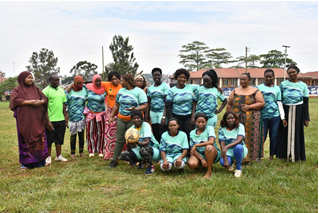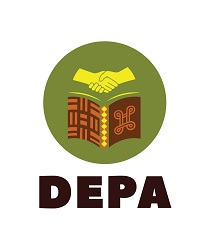
Refugees In Uganda Reflecting on Home and The Condition of Statelessness Using PhotoVoice
The United Nations Refugee Week 2024: “Our Home”
The United Nations Refugee Week is seven days of awareness focusing on the plight of 110 million displaced persons worldwide, of which 36.4 million are designated refugees (UNHCR 2024). This year's annual event carried the theme of ‘Our Home’, intended to be an acclamation and reflection where everyone is ‘invited to celebrate what our home means to them’.
Challenges Faced by Refugees
For these millions who are forced to flee though, they are at the mercy of an international order that is predicated on the sovereignty of the nation-state. Migration and borders are understood and governed along nationally drawn lines, wrapped in complex legalistic regimes and, increasingly populist politics of exclusion, that heavily control who is allowed to belong or to stay, and for how long. For many refugees, this system traps them in a condition of statelessness, where they are not formally recognised as citizens anywhere.
Having had to flee from your country, your community, your family and living in a constant condition of precarity because the global system of mobility deems you as a ‘non-citizen’, as stateless, what does home mean and become?
‘The Stranded Person’ – statelessness is being stuck between borders. Here the men are symbolically wrapped in cloth representing Rwanda and Uganda.
Photo taken by Shalom.
The DEPA Project: Exploring Citizenship and Belonging
The Decolonising Education for Peace in Africa [DEPA] project in partnership with PADEAP Uganda has held a [camera] lens up to this question. Working with young refugees living in Kampala, using the photography arts method of PhotoVoice to visually explore the complex and interconnected notions of citizenship, community and belonging, as well as, how they understand and view what statelessness means to them.
The project has delved under narrowly defined nationally and legally driven understandings of citizenship. Instead, using the concept of individuals performing acts of citizenship and civic duty as they are going about their everyday lives. One of the prompts the youth were given, which are statements or questions for guiding photo-taking on the issues that are being explored, was – ‘Show how you help in your community’.
‘Football for Women’s Unity’
Photo taken by Joyce
‘Since I was in primary school I played football. Women can enjoy it as much as men. About three years ago, I realised that I was really missing it. It had been a long time since my younger days, and I wanted to play again. So, I helped to set up this women’s football team. We aren’t a full team yet, but we go for some local competitions. It helps us all with getting physical exercise, but it is more than that. Our team is made up of refugees and Ugandans. Our individual interest in football has brought us women together, to help us connect and get to know each other more and more.’
For Shalom, his interpretation of the prompt is called ‘Planting for Health’
‘The trees that we grow for fruit, we distribute the fruit to different people so that they can then go and plant themselves to enjoy the trees and get health from their own fruits in time. Fruit is so important for health, particularly the guava. We give a lot of the fruit to Ugandans to replant, not just refugees. This is because refugees cannot own land. We ask that the Ugandans who we give to then give some of the fruits they grow back to the community so the benefit spreads.’
Resonance Beyond Borders
For all the youth who are part of the project, the images they took to represent their lives and experiences of community and belonging, and their accompanying captions that explain the meaning held within the photo for them, resonated far beyond the self and immediate family. They go beyond them as refugees from a particular country, beyond refugees as a collective of many nations to connect them to give back to Uganda and Ugandan society for hosting them.
Uganda’s Role as a Host for Refugees
Uganda currently hosts 1.5 million refugees and asylum seekers, (UNHCR, 2024) the highest number of individuals forcibly displaced in Africa. However, the country’s story of hosting the displaced dates back over six decades, with the first refugee settlement being established in the 1960s to house Rwanda’s Tutsi fleeing violence after the uprising of Rwanda’s Tutsi monarchy. These refugees have had children, and grandchildren, who have only known the Nakivale and Oruchinga settlements, never stepping onto Rwandan soil.
The Ugandan law on entitlements to citizenship is enshrined in the 1995 constitution. The laws are that only those who migrate voluntarily and, who, are not forced by external factors can gain citizenship. At the same time, children born in Uganda to persons who were forced to flee are not granted citizenship, meaning there are generations of children born into statelessness living in Uganda their entire lives but never being allowed to call it home. For all of those 1.5 million displaced in Uganda, the laws, as currently written, deny them the chance to claim a right to be a citizen.
For Joyce, being in Uganda and being stateless, is 'A Closed Door’.
This house has no signs of life, it is abandoned. The door is opportunity, but it is closed, everything is shattered. Statelessness means there is no direction and chances are lost. A closed door can still be opened, meaning there is hope in the future.
Challenges in Attaining Citizenship for Refugees
The 1954 Convention Relating to the Status of Stateless Persons defines a stateless person as, ‘A person who is not considered as a national by any state under the operation of its law’. Furthermore, the 1961 Convention on the Reduction of Statelessness requires that State Parties include certain safeguards in their national legislation to address statelessness occurring at birth or later in life. Although Uganda has ratified and domesticated most of the Convention’s provisions on statelessness in its Constitution and other subsidiary legislations on citizenship as a prerequisite to reducing and mitigating statelessness, there is much more the Ugandan Government could be doing to recognize and rights of refugees within its borders.
Yet, despite the legal hurdles facing refugees trying to obtain the title of citizen, Joyce’s representation of being stateless holds optimism for change.
Optimism for Change
The UN launched the IBelong campaign in 2014 to end statelessness by 2024 aiming to:
1. Resolve existing situations of statelessness
2. Prevent new cases of statelessness from emerging
3. Better identify and protect stateless persons.
As the 2024 UN Week of the Refugee ends, the invitation to celebrate what home means should also be a reflection on the limits of the success of the IBelong Campaign when over 100 million people remain displaced globally.
What the PhotoVoice images in our project portray is that for those living in a situation of statelessness, the reality of home is complex, conflicted and for many a far cry from the warmth, comfort, and security the emotive term of home evokes for so many. However, many of the refugees in Uganda are carving out a sense of belonging and community and show an active desire to contribute and give back to the communities that are hosting them in Uganda. Even if their contributions cannot be formally recognized as acts of civic duty as they remain non-citizens.
Global Efforts, Reflection and a Call to Action
The new Global Alliance to End Statelessness by 2030 seeks to accelerate solutions to statelessness through a collective multistakeholder approach, which centres and respects the experience of those who are stateless and formerly stateless, like Joyce and Pascal. PADEAP Uganda and DEPA will work to ensure the Global Alliance to End Statelessness will build on the momentum of the IBelong campaign to foster national, regional and global solidarity for the stateless.
- Uganda needs to end statelessness for refugees living in Uganda.
- Uganda needs to end discrimination, especially against stateless people allowing them to enjoy their human rights fully.
- A need for more collaborative research on statelessness requires hearing the voices of the stateless from a range of disciplines affecting them.
- PADEAP Uganda wants a world where no one is deprived of nationality as stated in Article 15 of the Universal Declaration of Human Rights.

